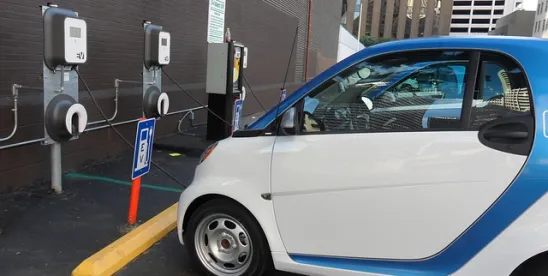This report helps automotive suppliers inform their legal and operational decisions to help address challenges and opportunities.
Key Developments
-
U.S. new light-vehicle sales in November reached a SAAR of 12.8 million units to 12.9 million units, and full-year 2021 light-vehicle sales are forecast at 14.9 million units to 15 million units, according to estimates from LMC Automotive and NADA.
-
U.S. fleet sales reached an estimated 1.5 million units for January – November, 42% lower than the 2.6 million units sold during the same period in 2019, and 1% lower compared to the same period in 2020.
-
Mexico indicated that it could impose tariffs in response to proposed U.S. legislation that would offer consumer tax credits for electric vehicles that are union-made in the U.S.
-
Ford will postpone its return-to-office hybrid work model for salaried employees to March 2022, instead of January, due to uncertainty about the state of COVID-19 developments.
-
Electric vehicles and low emissions technology:
-
Toyota will invest $1.3 billion to build a new electric vehicle battery plant in North Carolina that will employ 1,750 people and begin production in 2025.
-
Bollinger Motors announced a strategic collaboration with EAVX, a business unit of JB Poindexter & Co, to develop electric work trucks. The companies will integrate EAVX's commercial work-truck bodies and accessories with Bollinger's electric vehicle platforms.
-
Volkswagen estimates that it will need to invest up to 30 billion euros ($34 billion) in new battery cell manufacturing sites and raw materials. The automaker plans to seek partnerships to support its goal of opening six battery cell plants in Europe by 2030.
-
Rystad Energy predicts steep increases in demand this decade for lithium, nickel and cobalt needed in EVs and energy-storage batteries.
-
Toyota announced that its European new vehicle sales will be zero-emissions by 2035, with an interim goal of reaching 50% ZEV by 2030.
-
Market Trends and Regulatory
-
Tin prices have roughly doubled in 2021 compared to one year ago, reflecting an upward trajectory that is the steepest annual increase in three decades.
OEMs/Suppliers
-
GM raised its full-year financial outlook to $14 billion, from a previous guidance of $11.5 billion to $13.5 billion in adjusted earnings before interest and taxes. The revision is due to improving supplies of semiconductors.
-
In its first quarterly report since going public, Volvo Cars stated that semiconductor supplies have improved “month by month” since September, but that it expects shortages to “remain a restraining factor” industrywide.
-
Marelli announced plans for its operations to become carbon neutral by 2030, by using higher-efficiency equipment, renewable energy, and carbon credits.
-
Ford stated that it was the top-selling automaker in the U.S. in November, and that its 2021 F-Series pickup is the industry’s top-selling truck for the 45th consecutive year.
Connected/Autonomous Vehicles and Mobility Services
-
Nuro and 7-Eleven will pilot a commercial delivery service using autonomous vehicles in Mountain View, California. The project will begin this month with Nuro’s self-driving Priuses, and eventually will use the company’s R2 delivery vehicles.
-
Amazon Web Services launched a new cloud-based data service, AWS IoT FleetWise, that could help automakers remotely diagnose issues in their vehicles for the purpose of improving safety and preventing recalls.
Electric Vehicles and Low Emissions Technology
-
Lucid Group received a subpoena from the U.S. Securities and Exchange Commission pertaining to an investigation of the SPAC deal that recently took the electric-vehicle company public.
-
Chevrolet Bolt production downtime at GM’s Lake Orion Assembly plant was extended to the end of January as the automaker continues work on the vehicle’s battery-related recall.
-
GM will form a joint venture in North America with South Korean company Posco Chemical to process cathode active material used in the automaker’s Ultium electric vehicle platform. Site selection is anticipated after the deal closes, which could occur by the first quarter of 2022.
-
Massachusetts-based solid-state battery maker Factorial Inc. announced collaborations with Stellantis and Daimler’s Mercedes-Benz. The partnerships will focus on developing solid-state battery technology for electric vehicles. Solid-state batteries could reduce battery costs and increase range, but it is expected the technology will have difficulty achieving mass market adoption this decade.
-
German automotive supplier TÜV SÜD plans to invest $44.1 million and create 40 jobs for an electric vehicle battery-testing facility in Auburn Hills, Michigan.
-
Electric vehicle and charging company Phoenix Motorcars filed to go public on the Nasdaq stock exchange under the ticker symbol of PEV. The company was founded in 2003 and is based in Ontario, California.
-
China is reported to be a significant source of revenue for Tesla, but the company is facing increasing challenges in the nation’s regulatory environment.
Prepared by Julie Dautermann, Competitive Intelligence Analyst




 />i
/>i

